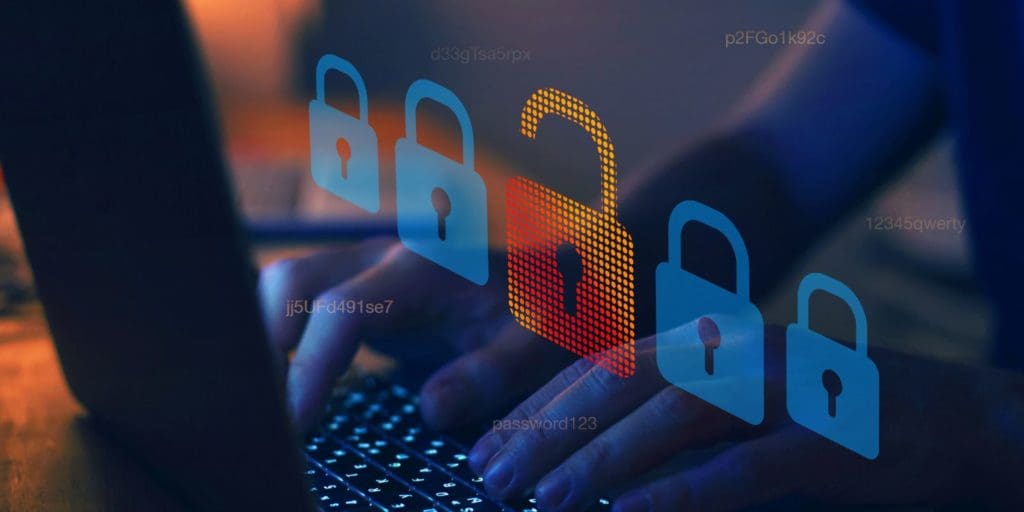Cybercriminals capitalize on system weaknesses to attack. If you seal all potential loopholes, it will be almost impossible to suffer the wrath of hackers. There are many cracks in the way we use our smart devices. They range from using weak passwords to accessing public Wi-Fi, among others.
How to Protect Your Data and Devices Against Malicious Parties
If you value the information on your device, you should try to protect it. Similar to thief-proofing your house, you must protect your digital space. In this post, we look at ways to protect your devices and files from cyber-attacks. Below are some moves you should make.
Use Strong Passwords for Your Accounts
One of the reasons why cybercriminals succeed is that most people use simple passwords. If you are creating an online profile or performing any security setup for your device, choose a password that is not easy to guess.
Avoid using common password ideas. Most people use their name, phone number, birthday, pet names, or names of family members. Don’t! Instead, use a string of characters that don’t bear a close connection to you and your personal life. Combine numbers, symbols, and upper and lower case characters.
Avoid Using Public Wi-Fi
A major reason why people fall victim to cybercriminals is using public Wi-Fi. When you use unsecured Wi-Fi, attackers can easily monitor your activities. It is so easy for attackers to capture your credentials on such connections.
To avoid a hack, only use Wi-Fi designated for private use. Make sure the Wi-Fi you use has robust encryption. This way, you will reduce the risk of a cybercriminal attack.
Use Internal Security Settings
All devices and systems come with some form of security. For instance, your email account may offer security options such as two-step verification. Make sure you activate 2FA to reduce the chances of anyone taking over your account.
Similarly, your desktop and phone have features that account for security. Instead of allowing anyone to access your device, use a screen lock. Choose a strong password that will prevent people from accessing your device. This move alone can help prevent plenty of potential attacks.
Use Proxies to Access Potentially Dangerous Sites
Using a proxy offers a significant advantage by safeguarding your online privacy. Proxies serve to conceal your IP address, effectively thwarting websites and other online platforms from monitoring your internet activities. They are especially valuable for individuals who prioritize their online privacy or seek access to content restricted in their geographical location.
Moreover, some proxies contribute to bolstering online security by encrypting internet traffic. By routing data through a secure server, proxies defend against hackers and other cyber threats. This proves particularly advantageous for users who frequently connect to public Wi-Fi networks, which are commonly susceptible to attacks.
If you’re a sneakerhead, you’ve probably heard of BSTN proxies. Aside from securing your traffic while you shop for that coveted pair of shoes, they help you access offers from merchants unavailable in your region. Score!
Do Not Open Unknown Attachments
The most dangerous and common cyber attack is phishing. In this threat, cyber criminals lure device or system users to surrender important information. For instance, you may receive an email claiming that your bank needs you to send certain information. The information you send is then used to hack your bank account.
Given the technical nature of phishing attacks, it is sometimes tough to prevent them. Attackers may even target junior employees in a company to get the necessary information. However, people can prevent these attacks by avoiding unnecessary communication.
Make sure you screen every message and email before opening it. If you receive an email from an unknown source, be careful before opening attachments or links. Ideally, use an antivirus to scan documents before opening them. Ensure you educate your close friends and employees so that they don’t easily trust everything they see online.
Log Out of Your Accounts After Use
If you are done using a specific account or device, make sure you log out. If possible, turn off the device. Leaving accounts open long after using them gives potential hackers access to your details. In some instances, the person looking to use your credentials might be a close contact. In an office or even home setup, there are always potential threats. To prevent losing control of your data and device, always log out.
Final Take
Cybercrime can lead to irreversible losses. A single attack can lead to the loss of valuable data that you have taken decades to gather. With threats looming at every corner, you must find ways to protect yourself. Take the above actions to protect your personal and work devices and accounts. It’s way better to be safe than sorry – every victim will insist that’s the cold hard truth!

